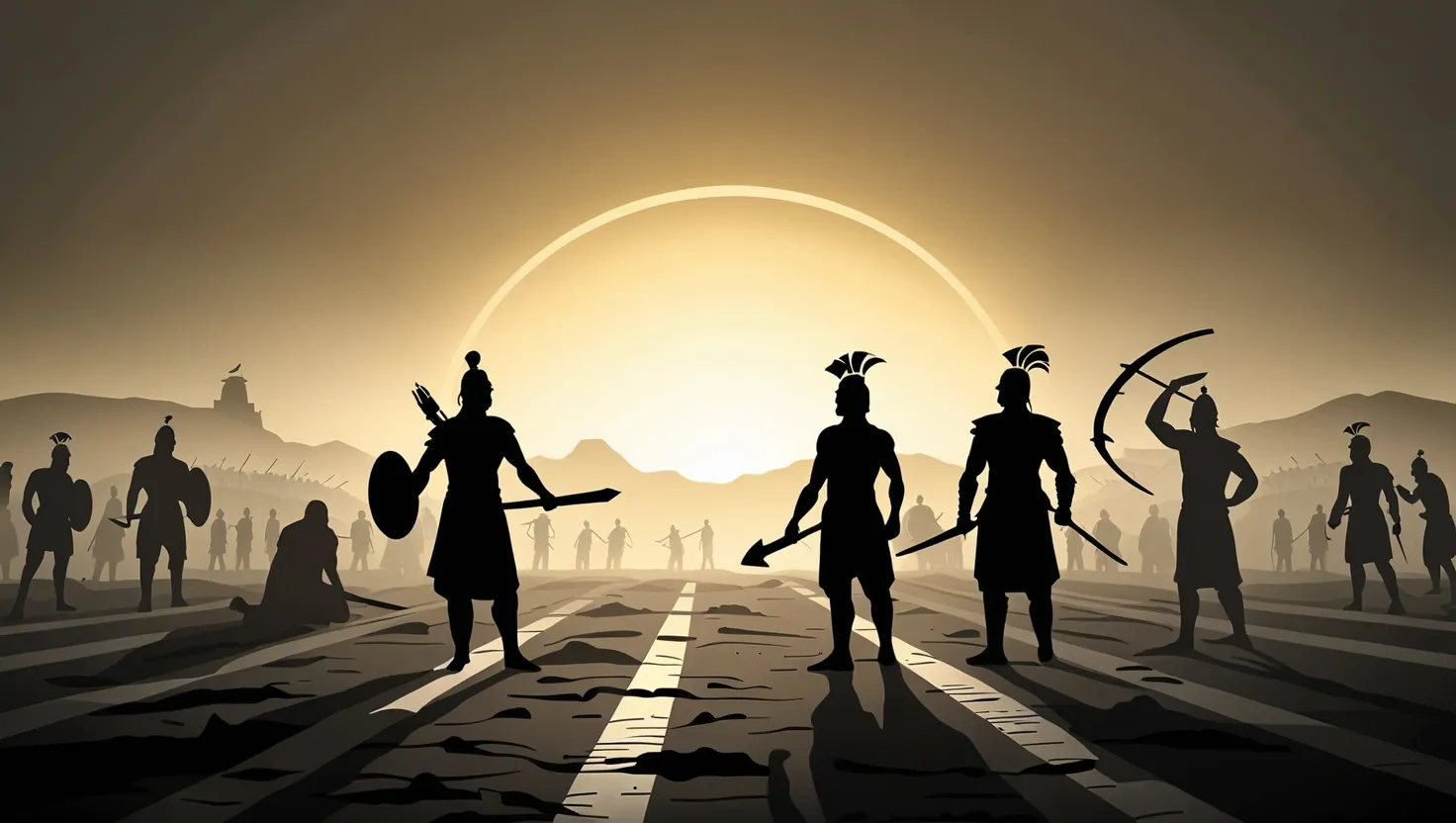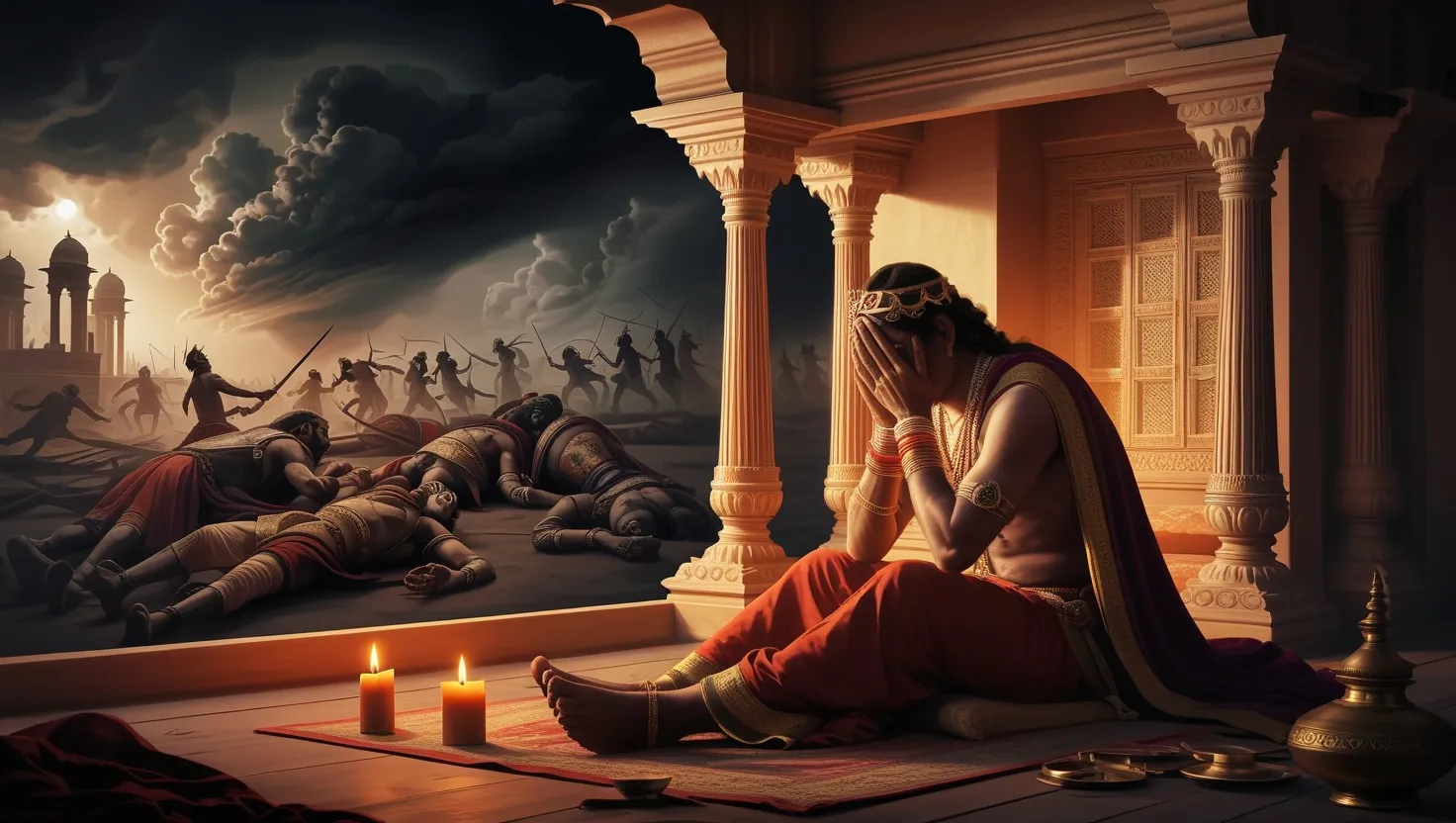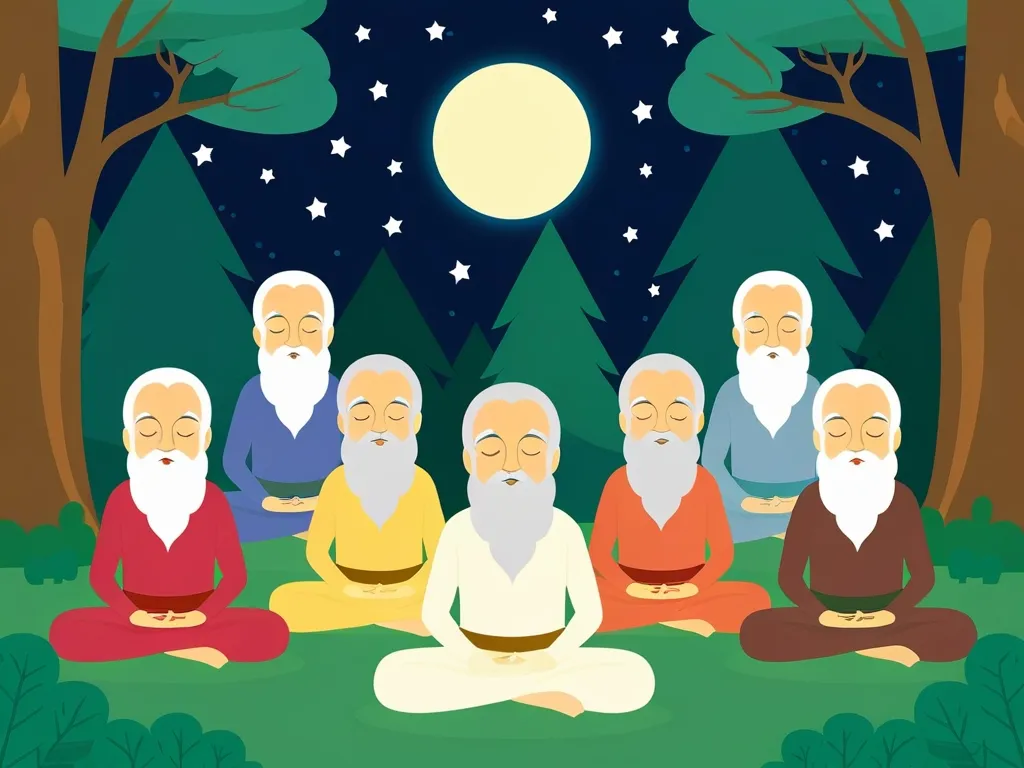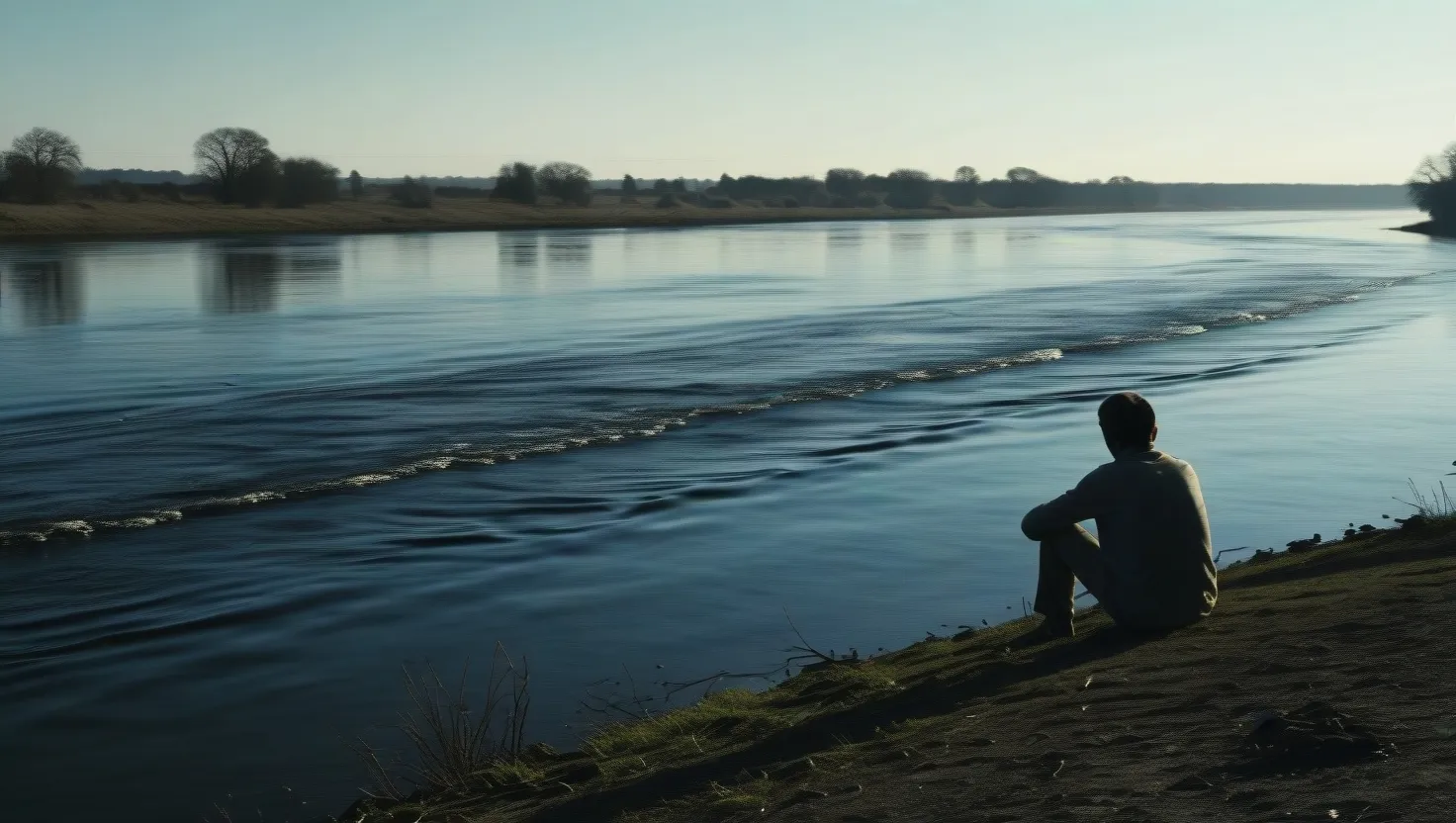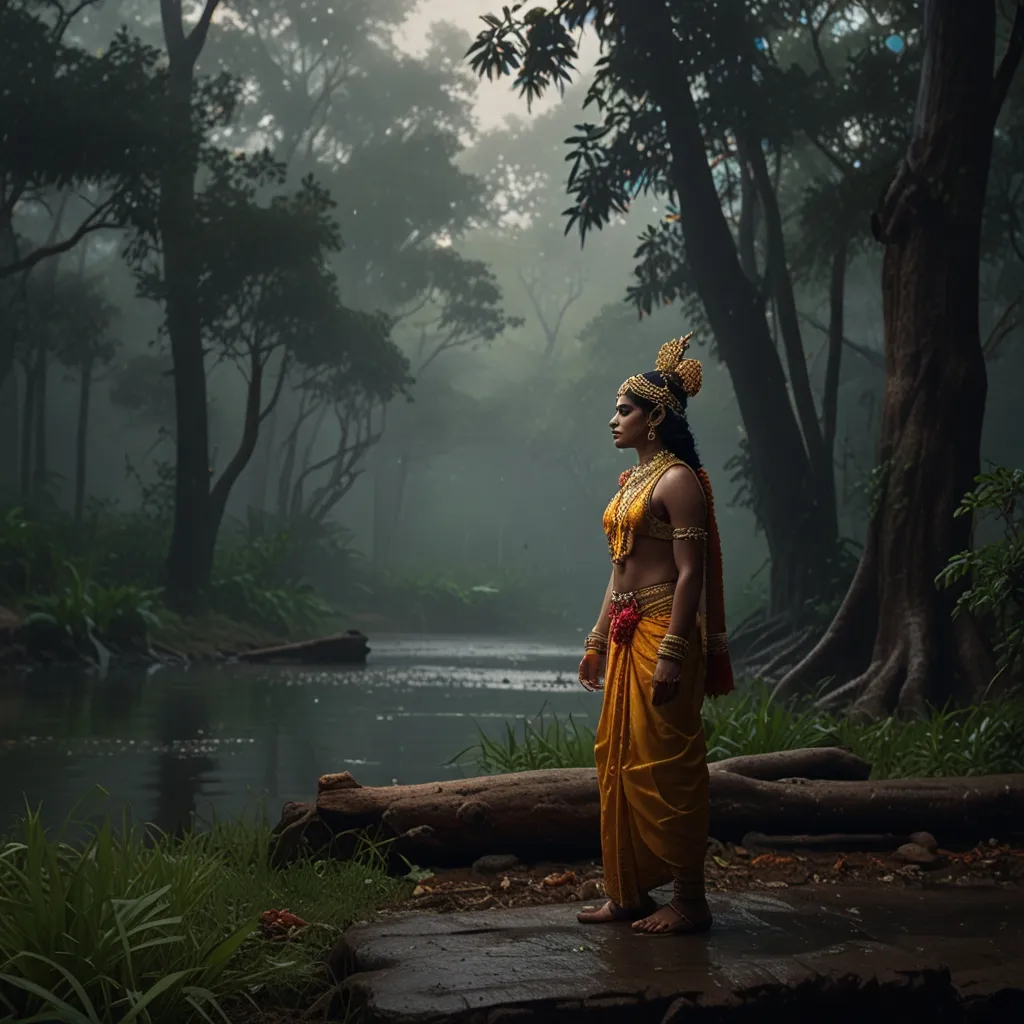The Mahabharata, a grand tapestry of human drama, unfolds through a series of pivotal choices that altered the course of history. These defining moments reveal the profound impact of individual decisions on the fate of nations and the human spirit. As we delve into seven critical junctures that shaped this epic, we find timeless lessons that resonate even in our modern world.
Imagine yourself standing at the crossroads of destiny, faced with a decision that could change everything. This is the essence of the Mahabharata’s most poignant moments. Each choice made by its characters carries the weight of consequence, often far beyond what they could have imagined.
Let’s begin with Kunti’s fateful decision to keep Karna’s identity a secret. Picture a young, unwed mother, terrified of societal judgment, choosing to abandon her firstborn son. This single act set in motion a tragic chain of events that would culminate in brother fighting against brother on the battlefield of Kurukshetra. Kunti’s choice, born of fear and shame, illustrates how the decisions of our youth can cast long shadows over our entire lives.
What would you have done in Kunti’s position? Would you have risked social ostracism to claim your child, or made the same heart-wrenching choice to protect your future?
Moving forward, we encounter Draupadi’s unconventional decision to marry all five Pandava brothers. This choice, far from being a mere quirk of the story, demonstrates remarkable political acumen. By accepting this unusual arrangement, Draupadi preserved the unity of the Pandavas, creating a family structure that would prove crucial to their survival during their years of exile. Her decision challenges us to consider how we might sacrifice personal desires for the greater good of those we love.
“I am the daughter of Drupada and the daughter-in-law of Pandu. How dare you, O sinful one, address me as a slave?” - Draupadi
Draupadi’s fierce words in the court of Hastinapura remind us of her strength and dignity in the face of humiliation. Her choice to marry the five brothers was not one of subservience, but of power and strategy.
The epic takes a darker turn with Yudhishthira’s decision to accept the challenge of the dice game. Despite knowing of Shakuni’s deception, Yudhishthira’s pride and the pressure of social expectations led him to make a catastrophic choice. As he continued to gamble, losing his kingdom, his brothers, and even himself, we witness the dangerous pull of trying to recover one’s losses. This moment serves as a stark warning about the perils of gambling and the importance of knowing when to walk away.
Have you ever found yourself in a situation where you knew you should stop, but pride or hope kept you going? How did it turn out?
Krishna’s offer before the war presents another crucial moment of choice. By giving both Duryodhana and Arjuna the option of either his vast army or himself unarmed, Krishna created a test of character that would foreshadow the outcome of the entire war. Duryodhana’s choice of military might over divine guidance reveals his reliance on external power, while Arjuna’s decision to choose Krishna himself speaks to a deeper understanding of true strength.
“I am Time, the destroyer of all; I have come to consume the world.” - Krishna
These words from the Bhagavad Gita, spoken by Krishna to Arjuna on the battlefield, remind us of the cosmic scale of the choices being made. In choosing Krishna, Arjuna aligned himself with the very force of destiny.
Bhishma’s vow of lifelong celibacy, made in his youth to secure his father’s happiness, had far-reaching consequences that he could never have foreseen. This noble act, intended to bring joy to his father, ultimately left the kingdom of Hastinapura vulnerable to succession crises that would span generations. Bhishma’s choice teaches us that even our most well-intentioned decisions can have unintended consequences that ripple through time.
The story of Karna’s rejection of Krishna’s offer to reveal his true identity is another moment of profound choice. Karna, aware of the potential to claim his birthright as the eldest Pandava, chose instead to remain loyal to Duryodhana, who had accepted him when others had not. This decision, rooted in gratitude and personal integrity, sealed Karna’s fate and ensured his participation on the side of the Kauravas in the great war.
“O Krishna, I know that I am the son of Kunti. But it is Duryodhana who has done good to me. I cannot betray him now.” - Karna
Karna’s words to Krishna encapsulate the complexity of loyalty and duty. His choice forces us to consider: Is there a point where personal integrity should outweigh the greater good?
Finally, we come to Arjuna’s moment of doubt on the battlefield, and his subsequent choice to fight. This pivotal scene, which gives rise to the Bhagavad Gita, represents the internal struggle we all face when our duties conflict with our emotions. Arjuna’s decision to take up arms against his own family members, guided by Krishna’s counsel, speaks to the difficult choices we must sometimes make in upholding our dharma, or righteous duty.
As we reflect on these seven defining moments, we see how the Mahabharata teaches us that our choices, often made with limited perspective and under great pressure, create ripples that extend far beyond our immediate understanding. Each decision point in the epic serves as a mirror, reflecting our own moral dilemmas and the weight of our choices.
Consider your own life. What decisions have you made that have had unexpected consequences? How might you approach future choices with the wisdom gleaned from these ancient tales?
The Mahabharata reminds us that we are all, in our own ways, standing on the battlefield of Kurukshetra. Every day, we face choices that shape our destinies and the world around us. While we may not be deciding the fate of kingdoms, our decisions in our personal and professional lives carry their own profound importance.
In the end, the epic teaches us that true wisdom lies not in always making the right choice, but in understanding the weight of our decisions and being prepared to face their consequences with courage and integrity. It challenges us to look beyond the immediate gains and losses, to consider the broader implications of our actions.
As we navigate our own lives, let the choices of the Mahabharata’s characters serve as both warning and inspiration. May we approach our decisions with the gravity they deserve, the wisdom to see beyond our immediate desires, and the courage to stand by our convictions.
What choice will you make today that might change the course of your own epic story?
